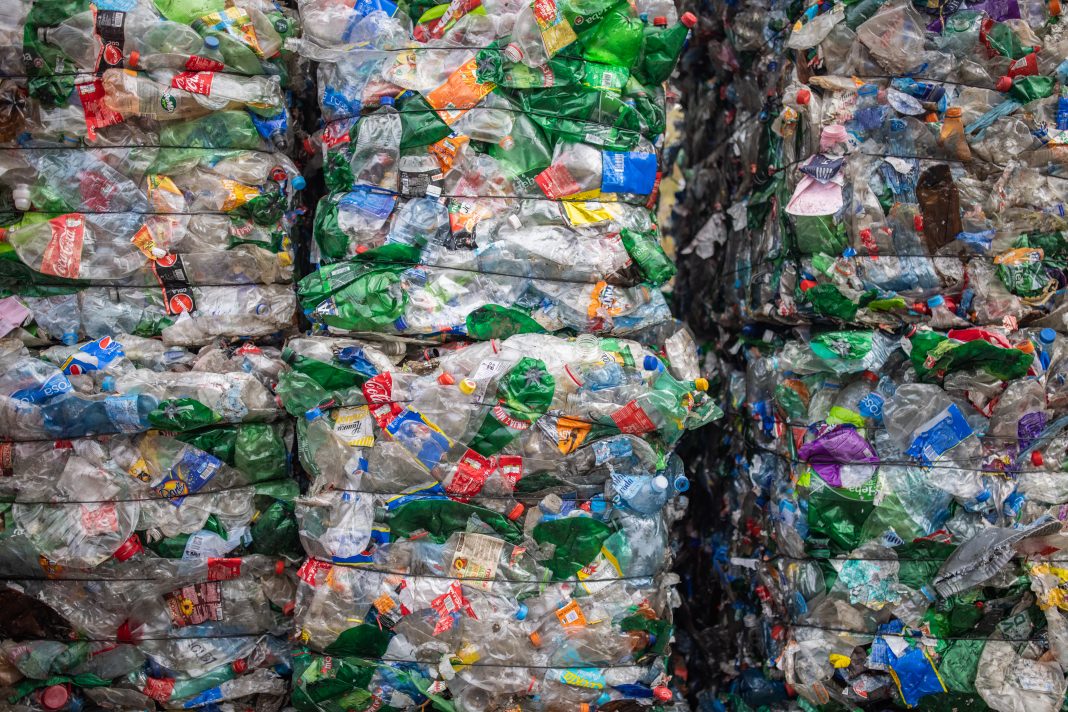A newly developed plastic upcycling process works for low-density polyethylene and polypropylene products that are currently forgotten about in the recycling process in the U.S.
There are a lot of potentially useful raw materials in plastic waste, but it takes an innovator to realise it.
Unfortunately, it is much cheaper to produce more of these single-use plastics than to recover and recycle them, a process known as plastic upcycling.
An international research team led by the Department of Energy’s Pacific Northwest National Laboratory has discovered a way of breaking down the persistent plastics found in used face masks, grocery bags and food wrap. The study has been reported in today’s issue of Science.
A newly developed plastic upcycling process works for low-density polyethylene products (LDPE, plastic resin code #4), such as plastic films and squeezable bottles, and polypropylene products (PP, plastic resin code #5) that are not typically collected in curbside recycling programs in the United States.
Plastic upcycling uses low temperature and reaction control
Recycling plastics usually requires ‘cracking’ or splitting apart the tough and stable bonds. It is these bonds that cause such a great problem for the environment because they are extremely strong and take a very long time to break down.
Furthermore, very high temperatures are required to actually crack the bonds, which ist expensive and energy intensive.
What’s different here is the process of combining the cracking step with a second reaction step that immediately completes the conversion to a liquid gasoline-like fuel without the unwanted byproducts.
The second reaction step deploys alkylation catalysts, which provide a chemical reaction currently deployed by the petroleum industry to improve the octane rating of gasoline.
What is crucial in this study is that the alkylation reaction immediately follows the cracking step in a single reaction vessel near room temperature (70 degrees C/158 degrees F).
‘Cracking just to break the bonds results in them forming another one in an uncontrolled way, and that’s a problem in other approaches’
“Cracking just to break the bonds results in them forming another one in an uncontrolled way, and that’s a problem in other approaches,” said Oliver Y. Gutiérrez, a study author and chemist at PNNL. “The secret formula here is that when you break a bond in our system, you immediately make another one in a targeted way that gives you the end product you want. That is also the secret that enables this conversion at low temperature.”
Looking at recent developments in the petroleum industry
The research team, co-led by scientists from the Technical University of Munich, pointed to separate, recent developments by the petroleum industry in order to commercialize crude oil processing.
“The fact that industry has successfully deployed these emerging alkylation catalysts demonstrates their stable, robust nature,” explained Johannes Lercher, a senior author of the study, director of PNNL’s Institute for Integrated Catalysis, and professor of chemistry at TUM.
“This study points to a practical new solution to close the carbon cycle for waste plastic that is closer to implementation than many others being proposed.”
There was, however, a noted limitation with their findings. The process works for low-density polyethylene products (LDPE, plastic resin code #4), such as plastic films and squeezable bottles, and polypropylene products (PP, plastic resin code #5) that are not typically collected in curbside recycling programs in the United States.
However, it does not work for high-density polyethylene (HPDE, plastic resin code #2) because this material would require pretreatment to allow the catalyst access to the bonds it needs to break.
Plastic upcycling: an untapped resource
Petroleum-based plastic waste is an untapped resource, and plastic upcycling can be the starting material for useful, durable materials and fuels.
In fact, over half of the 360 million tons of plastics produced globally each year are the plastics targeted in this study.
An innovator, a chemist and a realist
But to see value in a mountain of plastic requires a certain kind of mindset: an innovator, a chemist and a realist.
Lercher concludes, “To solve the problem of persistent waste plastic, we need to reach a critical point where it makes more sense to collect it and return it to use than to treat it as disposable.”
“We’ve shown here that we can make that conversion quickly, at mild conditions, which provides one of the incentives to move forward to that tipping point.”











